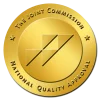Recreation & Recreational Activities
When we think about recreation, each of us probably has a different image that pops into our mind.
If you are outdoorsy, you might associate recreation with playing golf, going fishing or hunting, or hiking in the mountains.
If you are fond of the indoors—and the arts—you might associate recreation with going to a concert, visiting a museum, or staying home and reading a good book.
You might enjoy jigsaw puzzles, gardening, cosplay, painting, binging your favorite shows—the list of things we think of as recreational is long and varied. Our personal version of recreation likely matches our personality. As long as it is fun (and healthy), most anything can be recreational.
Combining Recreation With Therapy
That said, there are some things that we do not traditionally think of as falling into the category of recreation. The most obvious one might be work. Our jobs are, in many ways, the opposite of recreational. In fact, much of the time we spend doing recreational activities is all about setting aside the demands of our job for a little while.
Also on the list of things we probably do not think of as recreational: therapy.
After all, it is difficult to imagine anyone going to therapy because they are hoping to have a fun and relaxing experience, right?
Well, sure. And yet it turns out that there is a kind of therapy—aptly known as recreational therapy—that does, in fact, seek to use enjoyable activities as a way to provide therapeutic benefits.
Recreational Therapy & the Importance of Personalization
The success of a recreational therapy program depends on matching the client with an activity that they enjoy. When you find the right activity (or activities), there are many benefits that can come from a recreational therapy program.
These benefits include:
- A reduction in feelings of stress and/or anxiety
- A new feeling of connection and ongoing interest
- An improved quality of life
- An increased sense of self-confidence
Each of those things can support your overall mental health (and, for those in recovery from a substance use disorder, they can also support your ongoing sobriety).
The key is to get started, and that process can be helped along by your therapist. In collaboration with a recreational therapist, you can find the activities that provide the most benefits for you—and those activities will be at the intersection of enjoyment and healing.
Keeping the Focus on the Process Instead of the Product
One of the most important things to keep in mind about recreational therapy is that the goals are not centered on competition or mastery. Too often, we make the mistake of thinking that an activity does not have any value unless we can demonstrate how good we are at it. We want to win the game, earn the ribbon, have all of our friends tell us how much they admire us, and more.
But when it comes to the therapeutic value of recreational therapy, the notions of comparison or winning simply do not apply.
You could think about this important idea as focusing on the process rather than the product. That approach changes the markers of success. Rather than worrying about mastery or victory, you can focus on being engaged and present in the moment; experimentation and creativity; and letting your guard down so that you are less internally focused and more open to experience.
Of course, winning or demonstrating mastery of a skill can be quite satisfying in their own way. But when it comes to recreational therapy, engaging with the process matters most. That means picking an activity because you truly enjoy it—not because you think you could “win” at it.
Recreational Therapy Is on Offer at Johnstown Heights Behavioral Health
At Johnstown Heights Behavioral Health, we are committed to a personalized approach to mental health treatment. If we determine that recreational therapy would be beneficial for you, we have the expertise necessary to help you experience the benefits of a process-focused approach to recreation. Those benefits can be substantial and a key part of better managing a range of mental health disorders including depression, anxiety, and trauma-based disorders.







